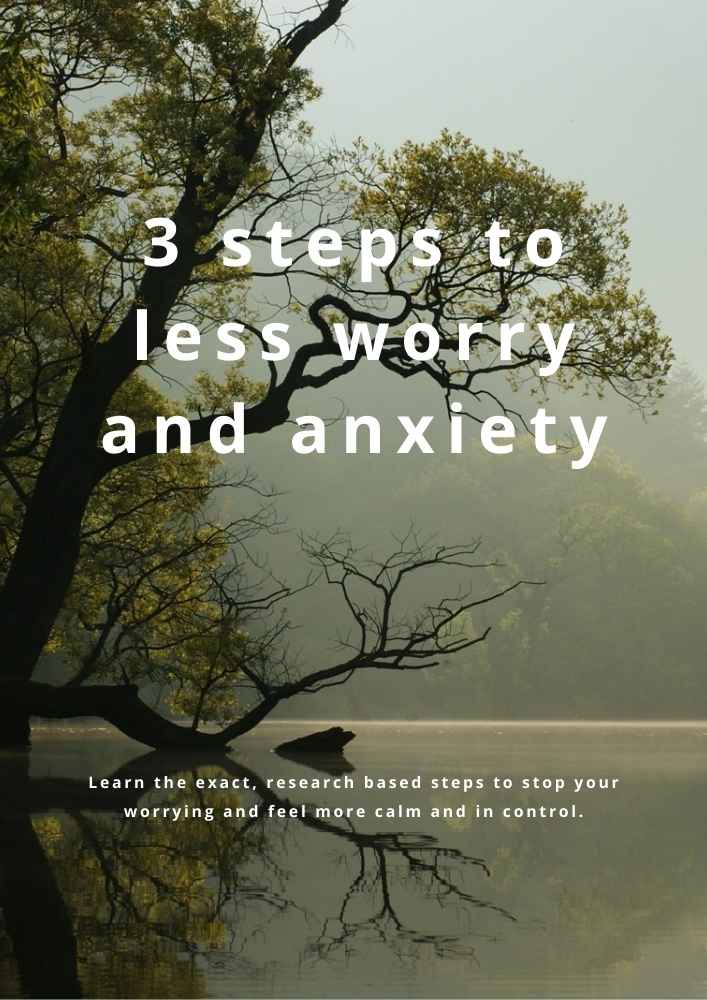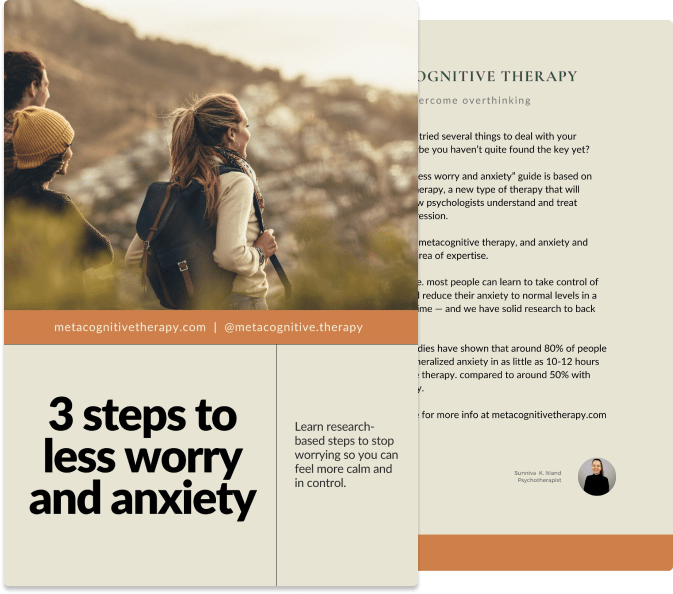The not-so-sunny reality of summer depression (and how to feel better)

Download our best tips on reducing anxiety and worrying
Learn three powerful metacognitive therapy steps to stop the worry cycle, reduce anxiety, and feel calmer in everyday life.
.jpeg)
.jpeg)
We don’t usually associate sadness with summertime, but for many people, summer comes with feelings of emptiness, pressure, and depression. If you’ve experienced this before, you might not have understood why you were feeling this way.
If you’ve experienced this before, you might not have understood why you were feeling this way. But in reality, this season comes with a bombardment of happy people doing amazing things all over social media, in your social circles, and on TV. It might feel like you should be, too. This often makes it feel extra lonely and isolating if you’re struggling.
You’re not alone if this is a difficult time, but there’s shifts you can make to feel better.
What is Summer Depression?
Summer depression is actually a form of seasonal affective disorder (SAD). Approximately 10% of people who struggle with SAD experience it in the summertime. In some countries, summer depression is as common as winter depression. For some, it’s recurring, while for others it might only happen once. Some cases are mild, but many have stronger, lasting symptoms at this time of year.
If you’re struggling with summer depression, you might experience the following:
- You feel disconnected, indifferent, or melancholic.
- Everyone else seems happy, which makes you feel even worse.
- You think you should make the most of summer, but just feel restless and frustrated no matter what you do.
- The sun is shining and people around you are happy, but you feel that everything is heavy, grey, and sad.
- You find it difficult to get out and get started with things that could cheer you up.
The causes of summer depression
At our Metacognitive Therapy (MCT) clinic, we have treated many people who were struggling with this form of depression, and we’ve found that there are some common factors that contribute to it:

Download our best tips on reducing anxiety and worrying
Learn three powerful metacognitive therapy steps to stop the worry cycle, reduce anxiety, and feel calmer in everyday life.
1. You Feel That You Should Be Happy
You don't allow yourself to feel down, empty, or sad during summer. You believe you’re supposed to feel good all the time, which can then make you start ruminating about why you don't feel happy. What's wrong with you? The focus shifts inward towards your negative feelings, creating a feeling of emptiness and meaninglessness. You're not fully present to what's happening around you.
These feelings provide fertile ground for even more rumination… it becomes a vicious cycle.
2. Summer Can Open Up Too Much Time to Think
For many who struggle with anxiety, obsessive thoughts, and depression, summer is especially difficult: A lot of people have more free time and breaks from their busy schedules, which gives them more time to think, and little to distract from their thoughts.
Worries, obsessive rumination, and inward focus (the biggest culprits of depression) can take over, leading you to isolate and stay inside while the summer passes you by.
3. FOMO
We’ve all felt the pressure to live life to the fullest when summer rolls around. But how do you realistically make the most out of summer at all times? This extreme way of thinking creates stress, pressure, and constant fear that you’re missing out on something. That you should have been somewhere else, doing something else. That summer is flying by without you having truly enjoyed it.
We call this summer-FOMO, and it means you can't enjoy being present where you actually are, because you’re always stressed and mentally elsewhere.
4. Comparison
Summer brings endless opportunities for comparison: Comparing yourself to other people’s bodies, vacations, families, friend groups, jobs, money… it can seem like everyone around you is thriving.
And with social media, you can compare yourself to everyone without even leaving your bed. You can stay home and watch colleagues, friends, acquaintances, and strangers enjoying summer at the beach or on a European getaway, while you haven’t left your house in days.
Needless to say, comparison is one of the surest ways to feel dissatisfied and unhappy with your life.
5. You Dread Summer and Expect It to Be Awful
When you've had some negative experiences with summer, you can start to expect the worst. When you anticipate that it will be difficult, you look for more evidence that it’s as bad as you thought, paying MORE attention to sad and heavy feelings.
When you start monitoring how you're feeling and turn your attention inward, you’ll notice more negative feelings, which will confirm your expectations. It becomes a self-fulfilling cycle.
Summer Depression can be treated
The good news? You can recover from summer depression. Metacognitive Therapy provides a groundbreaking approach to depression, and addresses the root beliefs and patterns that maintain it. The MCT method gives you simple, concrete tools to handle negative thoughts and feelings, so you can stop the cycle of comparison and rumination, and recover from depression.
If you’re interested in working with Metacognitive Therapy, you can book an appointment with one of our therapists here.



